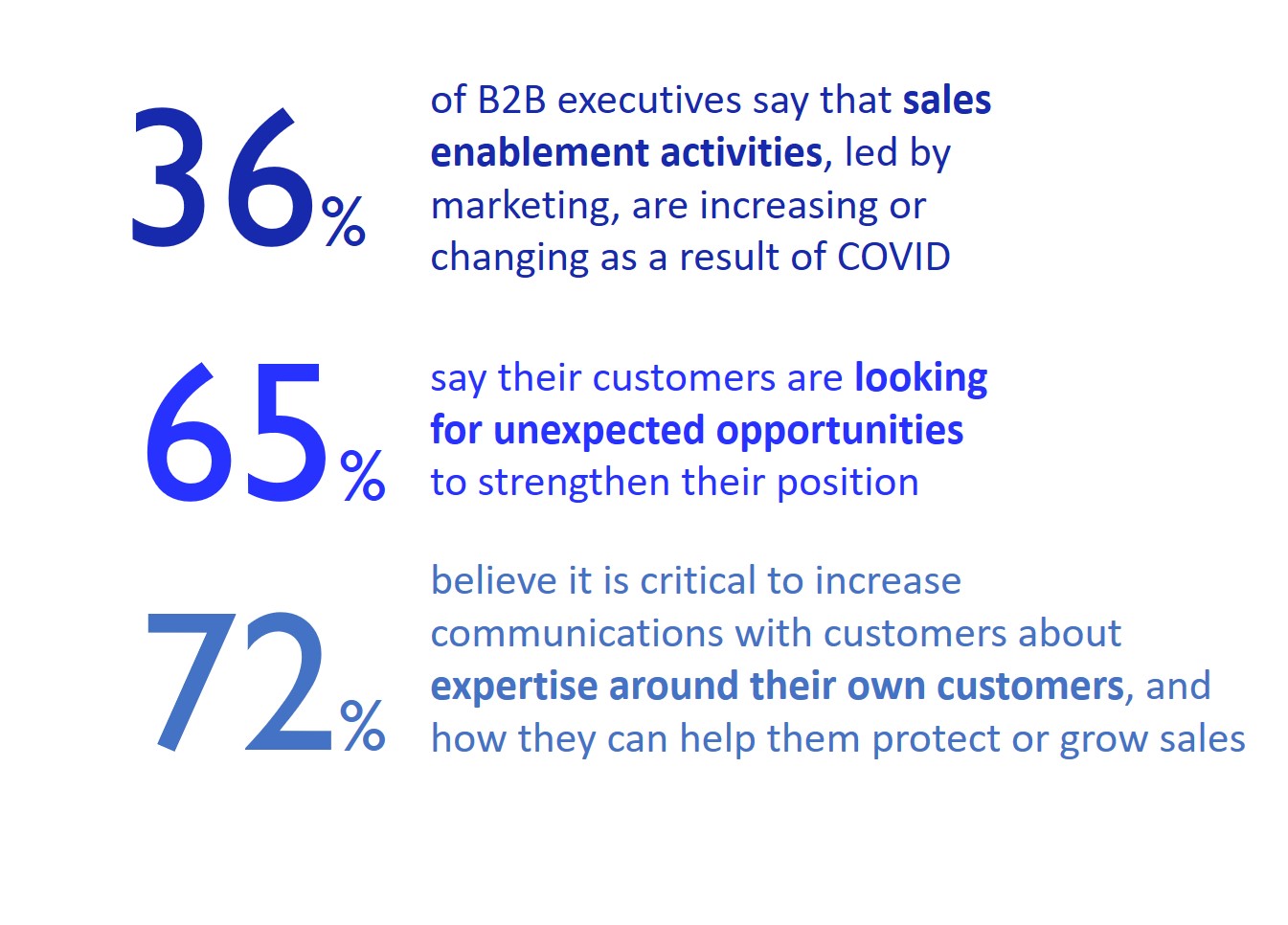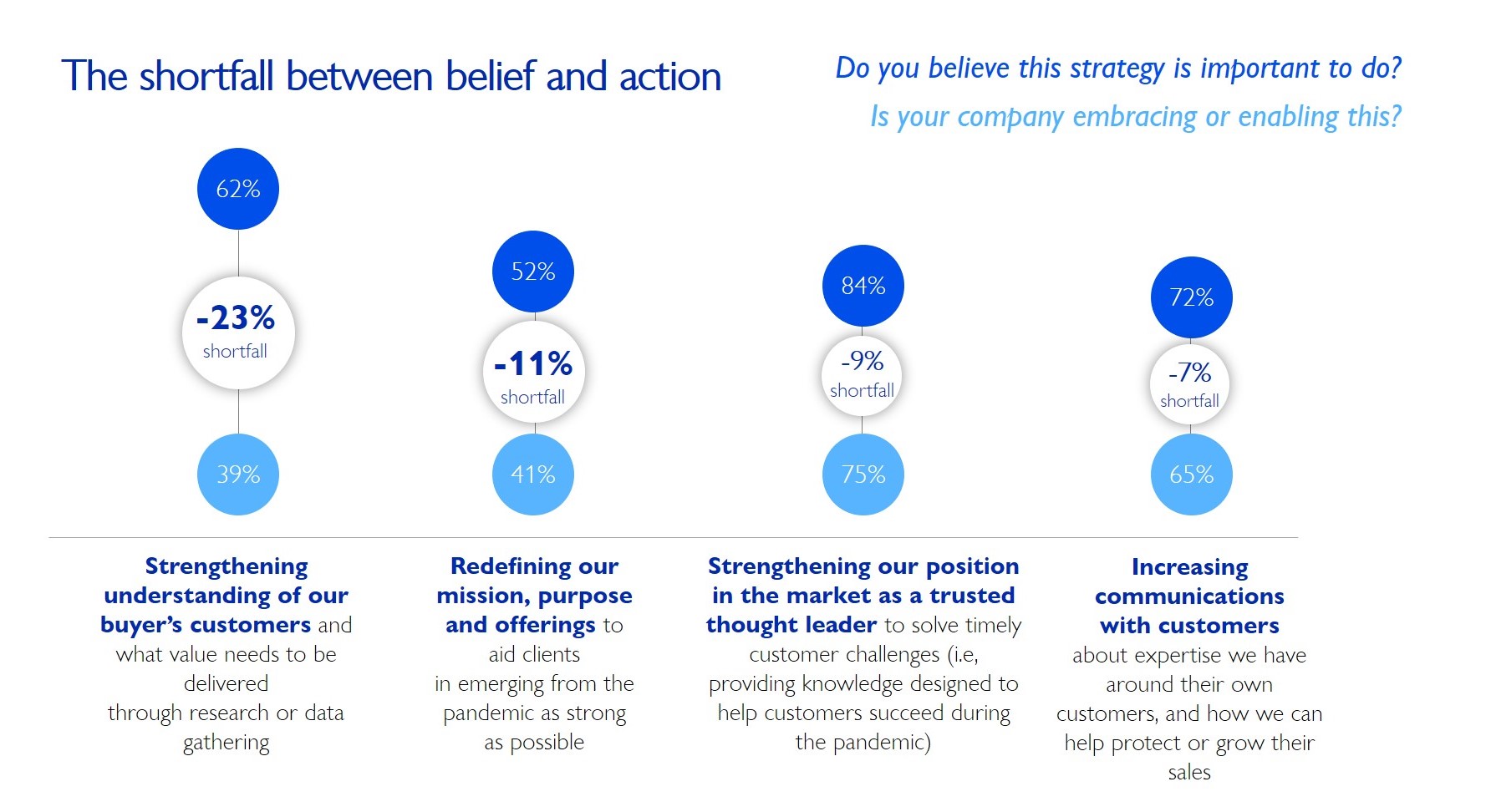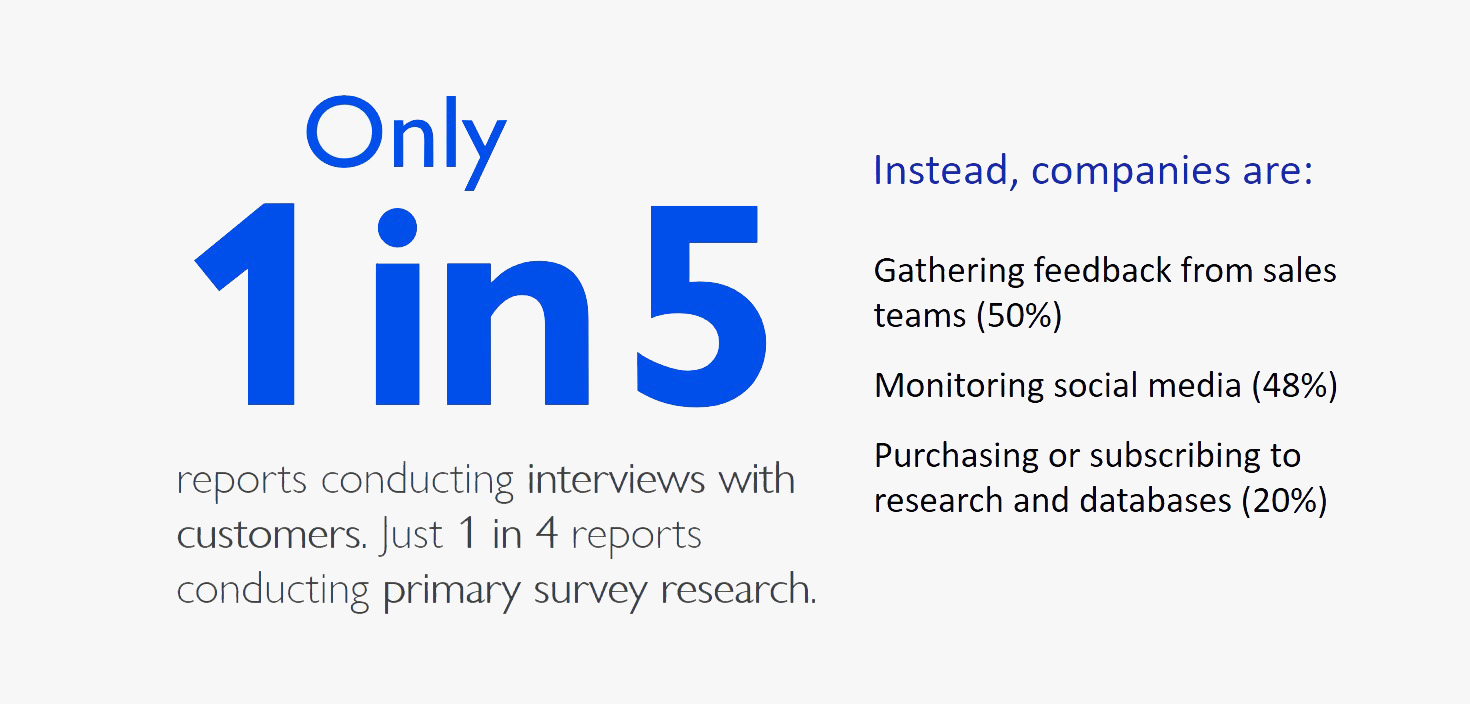At U.S. companies of various size and in different industries, B2B leaders know their customers are facing economic uncertainty and pressure to preserve cash—but customers are still seeking unexpected opportunities to strengthen their position. Our new LinkedIn-Edelman collaborative survey of nearly 400 B2B executives in the U.S. was designed to highlight the state of decision-making-and strategic opportunity—in the new Covid environment.
Covid-19 continues to send financial and economic shockwaves through global and local communities. The pandemic, along with concurrent geopolitical challenges and social movements, is changing how businesses operate, set strategic priorities and forecast performance. We built on our three-year collaboration with LinkedIn exploring thought leadership in the B2B space to assess how executives are responding to the pandemic and what this means for strategic decision-making.
B2B Customer Mindset
B2B executives know their customers are under pressure to protect their companies’ cash positions. Fully 72 percent of respondents say “preserving cash” describes their customers’ mindset in some way, with more than half (47 percent) saying it does so well or very well. Yet even more (65 percent) say their customers are still looking for unexpected opportunities to strengthen their position during these times.
Be prepared, however, for longer sales cycles, as customers are slower to evaluate and decide on purchases.1 Customers are interested in buying but are exercising greater levels of scrutiny. For B2B marketers and communicators, this potentially means more journey touchpoints and decision-makers to win over than before. And that will require adjustments to marketing and sales enablement.

Our study earlier this year affirmed just how critical it is to deliver timely, relevant content. Many customers are worried about their own job security and the ability of their companies to survive2, and our most recent study on brand trust has consumers citing personal vulnerability as a reason why brand trust has become more important3. With these very personal factors coloring the sales journey, it is more critical than ever to deliver the right content to the right people at the right time.
Strategic Priorities for B2B Companies
Based on the observed mindset shift, the vast majority (84 percent) of B2B executives we surveyed believe it is very or extremely important to lean into their position as trusted thought leaders. Nearly two-thirds of executives believe it is important to strengthen understanding of their buyers’ customers through new or intensified research or data gathering, and even more (7 in 10) say it is important to communicate their expertise in helping customers to protect or grow their sales. Half even believe it is important for their companies to redefine their mission, purpose and offerings, to aid clients in emerging from the pandemic as strong as possible. And the vast majority (74 percent) reject inaction.
There are some notable gaps, however, between what B2B executives believe is important to do and what they are doing. Unsurprisingly, most executives report that their companies are leaning into their position as trusted thought leaders and increasing communication with customers. 5 Yet only 39 percent say that their companies are embracing or enabling a deeper understanding of their customers, and just 41percent are redefining their mission, purpose and offerings around pandemic survival and emergency—a double-digit shortfall in both cases between belief and action.

The reason for the gap? By a wide margin, the uncertainty around the length of the pandemic is the top barrier preventing B2B companies from implementing these new strategies. With global economic health, ways of transacting, workforce safety considerations and even school openings in flux, companies are hesitant to commit resources to knowledge-building. They’re reverting to a defensive position anchored in the familiar and are disinclined to risk.
Impact on Marketing
In the immediate term, slightly more companies (55 percent) have shifted their marketing efforts to focus on existing offerings that are especially valuable to customers right now, as opposed to creating and marketing new offers (45 percent). Gathering feedback from sales teams and conducting social media monitoring are the top tactics B2B companies are using to better understand their buyers’ customers. These tactics are among the least resource-intensive to implement and provide some of-the-moment perspective.

Yet deeper research may be needed to unpack lasting, actionable insights on where buyers are steering their own businesses and how B2B companies can capitalize in an environment that is creating winners and losers. In our view, the companies that are conducting primary research—just 1 in 4 of the B2B executives we surveyed—are likely building competitive advantage over the similar proportion who have no plans to gain further understanding of their buyers’ customers.

Beyond product marketing, B2B companies are increasing their activity to provide consultative knowledge and resources designed to help customers succeed during the pandemic. Executives have indicated prioritization in four key areas: content publishing (59 percent), thought leadership grounded in expertise (55 percent), virtual experiences such as webinars or panels (52 percent), and executive communications (44 percent).
Nearly half (46 percent) agree that marketing spending is being evaluated even more closely for direct sales impact. Roughly a third of B2B executives say that marketing is being asked to play a greater role in sales enablement activities, and sales teams are increasingly asking marketing to help them deal with customer engagement barriers by creating new door openers and air cover. A similar share of B2B executives also believe that precise customer segmentation in marketing activities is more important because the health of their customers varies widely.
Implications for B2B executives now
So what do these findings mean for B2B marketers’ decision making in the new COVID-driven context?
- Astute B2B marketers recognize Covid-19 as an opportunity to reposition their offering for the long term. The new Covid reality has already reshaped B2B marketing for the long haul, including accelerated adoption of digital technologies and e-commerce. Some of the new challenges that COVID has created for B2B buyers – such as dispersed buyer sets, the need to prove ROI faster, the challenge of evaluating solutions without the benefit of in-person engagement – are likely to continue for the foreseeable future. Some of these challenges may become cemented for the long run. Companies looking to gain advantage are already investing in understanding their customers’ customers in this enhanced digital context, going so far as to redefine their company mission, corporate purpose and offerings around helping clients emerge from the pandemic stronger.
- Refocus on knowing your customer—and their customers. B2B buyers are not a monolith but a vast array of companies, industries and perspectives. B2B companies with a diverse customer base especially must understand and adjust their approach to meet a variety of customer challenges. Given the new digital landscape and cautious mindset in which buyers are making purchasing decisions, companies that capitalize on segmentation strategies will gain an edge. Such strategies will also enable more precise allocation of marketing efforts towards those areas with the greatest revenue potential. Doing this effectively may require more than the resource-light pursuits of gathering sales feedback or engaging in social media monitoring. To distinguish between momentary adaptations and lasting shifts in customer needs and preferences, deeper primary research is irreplaceable. The companies that undertake this endeavor now will be more likely to win new customer relationships, build trust, and engender loyalty in an environment where customer churn can have outsized impact. Especially in industries where longer-term customer/provider relationships are the norm, this will drive material value for these B2B companies not just during the pandemic but possibly for years to come.
- Move your B2B marketing efforts beyond lead generation to include journey enablement and customer relationship management. Because the success and value of marketing efforts will be more scrutinized for sales impact, B2B marketers will need to shift their own mindset from narrowly lead-focused to supporting the full buyer journey. The longer sales cycle and increased purchase scrutiny in the COVID environment means there will be more touch points during the buyer journey and customer lifecycle, and each of those touch points takes on new significance given less face-to-face engagement. Marketing teams can pursue content and experiences aimed at reducing barriers to prospective customer engagement, increasing customer retention and improving customer satisfaction. This also positions marketing teams to attribute additional business value to their activities beyond high funnel awareness or rudimentary lead generation.
- Enable stronger collaboration between sales and marketing functions to achieve customer outcomes. Because marketing is being asked to play a greater role in sales, there is a clear imperative to forging greater alignment between these functions. To capitalize on this, marketing teams should source insights and inspiration from their sales counterparts to acquire understanding of the critical pipeline KPIs, customer journey stages and touchpoints where challenges are occurring. Out of necessity, marketers are now even more poised to generate content that can tie directly to sales efforts, whether through opening doors (to new, different, or higher level buyers), improving nurture efforts or generating late-stage materials to prove value to reticent buyers.
- Aspire to earn thought leadership and customer trust in this period of disruption. Now is not the time to walk away from expert understanding of your B2B customers. Most B2B executives recognize the importance of maintaining their market position as thought leaders. Performing primary research empowers you to help your customers solve timely challenges in concrete ways. It can be among the most intensive of marketing endeavors, but it leads to expert understanding that, as our 2020 thought leadership research supports, can bolster a market-leading stance.

